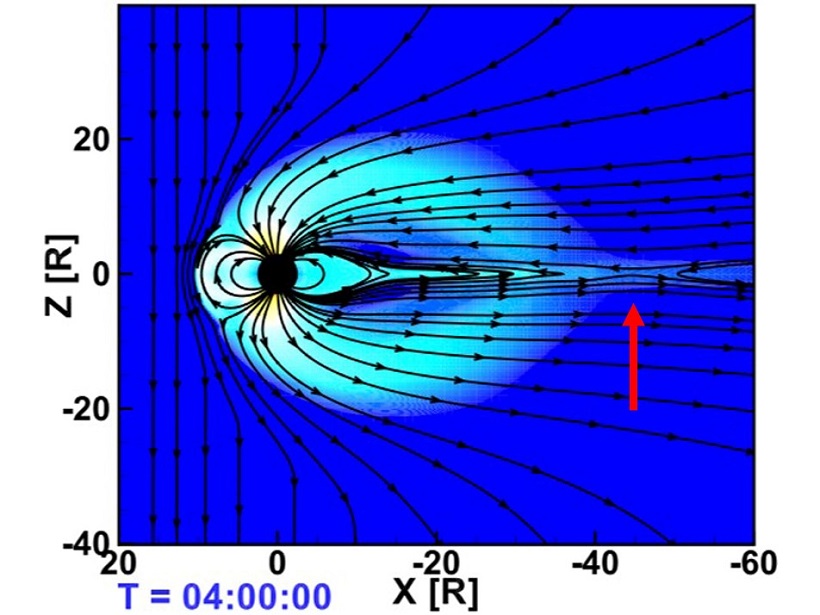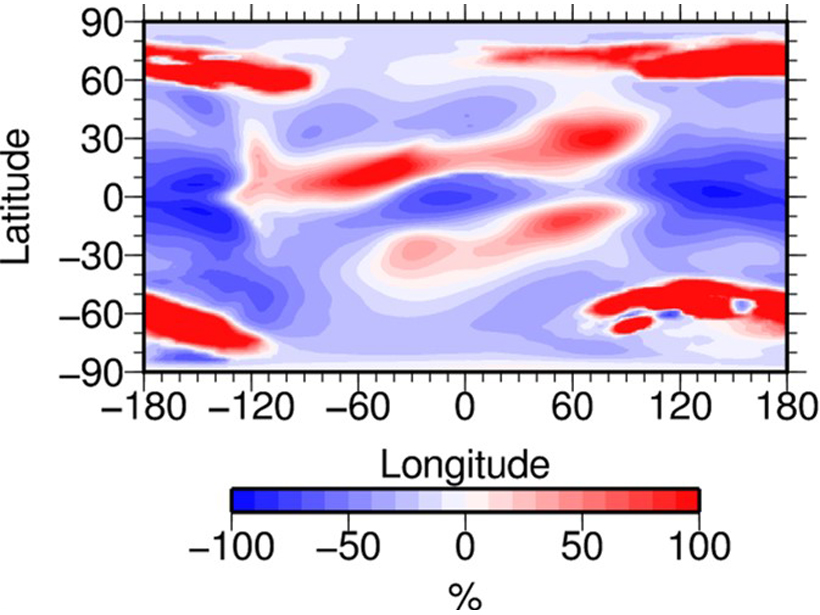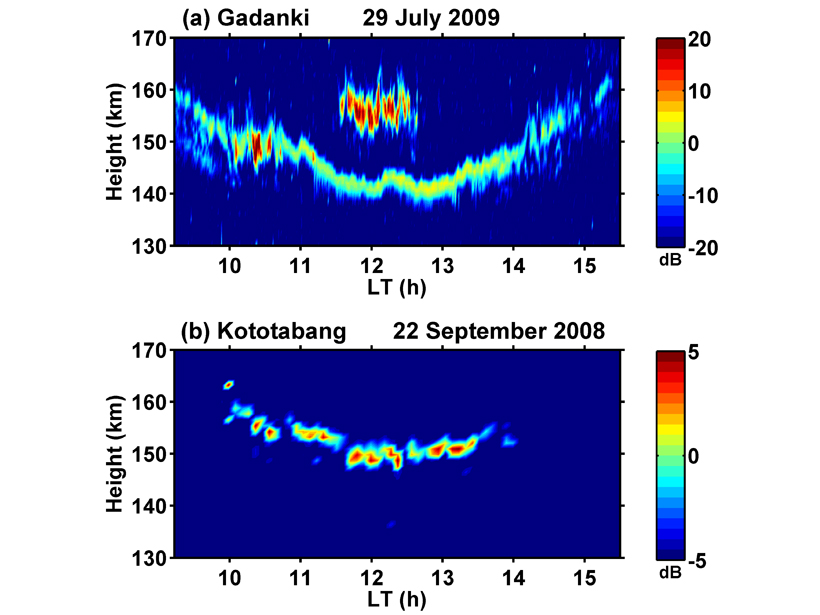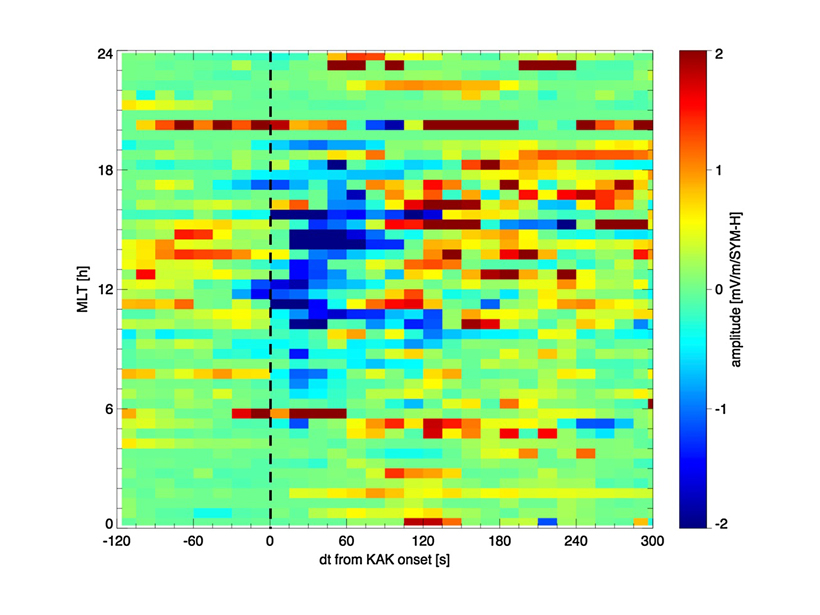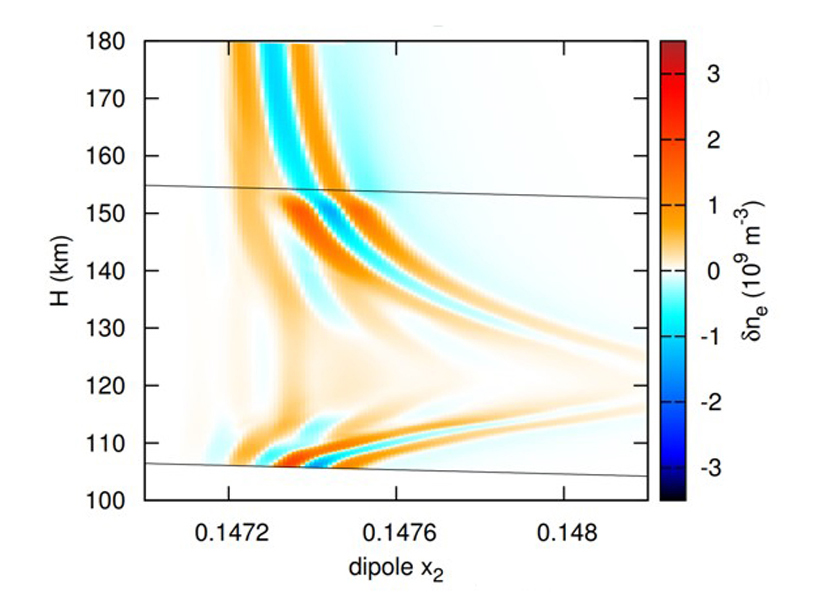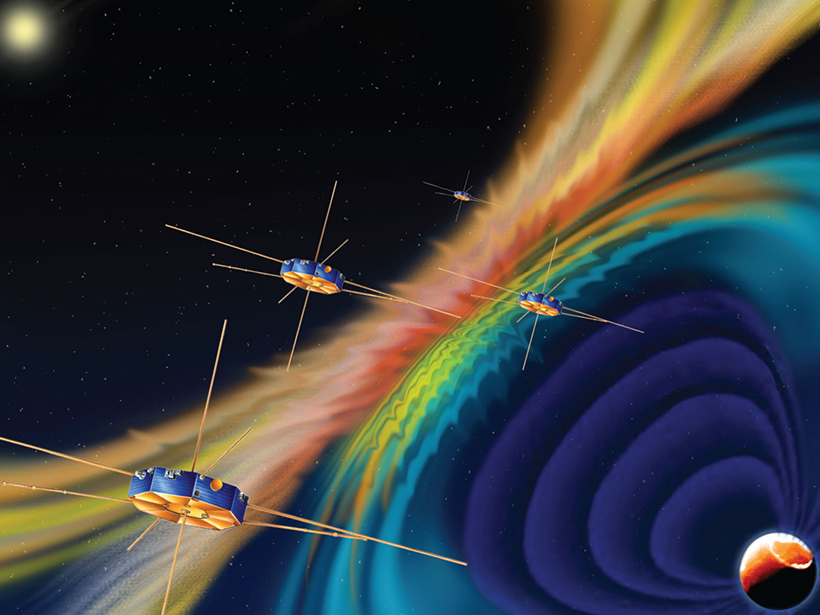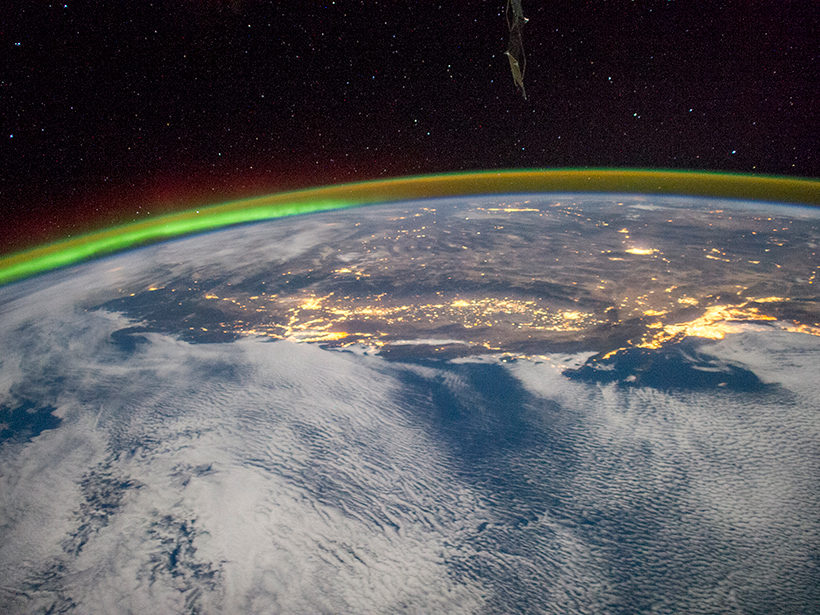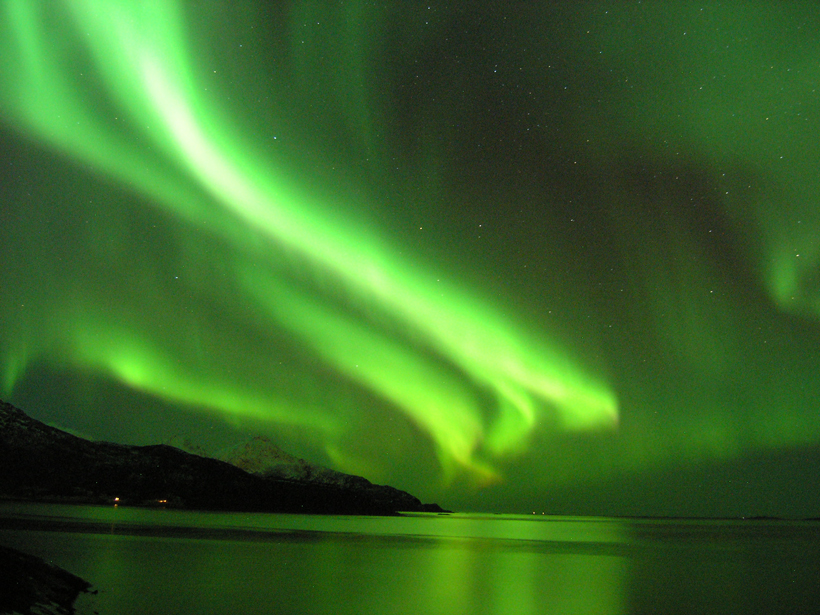A large plasma hole generated by the vertical launch of the Formosat-5 satellite created temporary navigating and positioning errors of up to 1 meter, according to a new study.
ionospheres
Evidence That Earth’s Forehead Controls the Wagging of its Tail
Yes, Earth has a tail, a magnetotail, and there is debate about how much Earth’s upper atmosphere plays a role in the controlling the dynamics of this region of space.
Modeling Geospace: Quantifying the Known-Unknowns
Imperfect knowledge of high-latitude forcing of the coupled ionosphere-theremosphere system translates into uncertainty in the low-latitude and midlatitude response to a geomagnetic storm.
New Observations of Mysterious Radar Echoes
Exploring the relationship between solar extreme ultraviolet radiation flux and 150-km radar echoes.
Solar Wind Sets the Magnetosphere Ringing
A combination of data from satellites and ground-based instruments gives new insight into solar wind-magnetosphere-ionosphere interactions.
New Insight into Ionospheric Feedback Instability
A new modeling effort could change our understanding of auroral arc formation.
Jets of Ionospheric Cold Plasma Discovered at the Magnetopause
The lower-energy particles may play a larger role in magnetic reconnection than previously believed, influencing space weather near Earth.
Is There a Greenhouse Effect in the Ionosphere, Too? Likely Not
Controversial observations of long-term changes in the ionosphere appear to be explained by the Sun’s 11-year cycle of activity, not human greenhouse gas emissions.
Auroras May Explain an Anomaly in Earth’s Ionosphere
A new study finds that the ionospheric anomaly over the Weddell Sea is likely influenced by proximity to auroral energy input, rather than by tilting magnetic fields.
Mining Ancient Texts Reveals Clues to Space Weather of Yore
Low-latitude sightings of colorful hues in the sky likely to have been auroras indicate powerful geomagnetic storms buffeted Earth when some old chronicles were written, researchers report.


